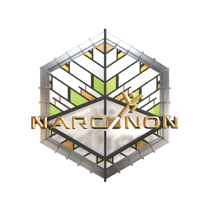Early Recovery Aided by a Change of Environment

What is it about driving down certain roads that just makes us feel better? Or why do we feel that unique calm wash over us when we walk through a park we’ve been coming to for years? Conversely, what is it about a stroll by our old school that brings out a whole mixed bag of emotions? Or the frustration we feel when we drive by a business we got let go from?
These emotions, all associated with locations, are the result of environmental cues. When we experience good or bad moments in life, the places where those occurrences happened are tagged in our mind as being intricately connected to the incident that occurred there. In the future, when we find ourselves in those locations again, we might feel similar emotions to those we felt in the past.
A baseball stadium where one broke up with a girlfriend or boyfriend will always seem like a depressing, gloomy place. Conversely, the park one got married in will always seem bright, sunny, and pleasant.
Environmental cues have significance in addiction recovery, too. If a recovering addict drives by the same street corner where he used to score drugs, he might feel an almost subliminal but very present craving for drugs.
Exploring the Nature of Memory—All About Environmental Cues
There’s a fair amount of discussion about environmental cues. An article in Science Daily explored the highlights of a study published in Learning and Memory. The Science Daily article talked about how something as simple as being in an environment where something significant happened in the past can cause, in the present, the thoughts, feelings, and emotions that were present in the earlier incident.
Professor Francesco Leri, co-author of the study as published in Learning and Memory, also commented on the study’s findings. His comments were documented in the Science Daily article cited above. “Stimuli in our environment, such as buildings, objects, and places, are normally fairly innocuous. When they're associated with drugs of abuse, they can become modifiers of memory function.”
The above researcher is not the only expert talking about the power of one’s environment. Quoting the Help Guide: “Avoid bars and clubs. Even if you don’t have a problem with alcohol, drinking lowers inhibitions and impairs judgment, which can easily lead to a relapse. Drugs are often readily available, and the temptation to use can be overpowering. Also, avoid any other environments and situations that you associate with drug use.”
Another research paper, this one published in the U.S. National Library of Medicine, had this to say about the success rates of changing an environment: “When we looked more closely at the strategies people in stable recovery named, one strategy stood out: changing one's environment. Four of the five people in stable recovery actively changed their living environment, to avoid substance-related cues.”
Change Is Good

When in recovery, change is good! If one is fresh into recovery and is turning over a new leaf in life, why would they want to hang out with the same people, frequent the same places, be apart of the same groups, or maintain the same daily habits and rituals that they had when they were using drugs?
One could argue that, for recovery to be truly successful, one needs to not only cease drug use and drinking, but they should also cease all other unhealthy and non-optimum habits. That would clearly mean no longer buying drugs from one’s "friends." And it would also mean no longer even spending time with those friends. It would mean no longer frequenting the establishments and locales where those friends spent their time.
Kicking a drug habit doesn't just mean physically stopping oneself from using drugs. It also means changing one’s lifestyle. It means not going to the same places and not seeing the same people that one used to go to and see. It means avoiding the whole mixed bag. Not only is it a safe thing to do to prevent relapse, but it is also a sensible thing to do for someone who wants to create real change in their life.
Helping Your Loved One Create Stability in Sobriety
A lot of people think that assisting their loved one to enter a treatment center is the only task they must accomplish. They believe that once they get their loved one into rehab, their work is done. The rehab will do the rest of the work.
But helping someone overcome a drug problem is much more involved than that. While a treatment center is a huge necessity for any recovering addict, the months following treatment will also be crucial in your loved one's efforts at creating a new life.
Time spent in rehab will equip your loved one with the tools and the know-how he or she needs to face life without turning to drugs. But that doesn’t mean there won’t still be tough times ahead. When your friend or family member completes treatment, you should work with him on how he can create new environments, new groups, new activities, and new living conditions.
Your loved one doesn’t have to pack his bags and leave the city. But he shouldn't spend time in the places where he used to use drugs or alcohol. He shouldn’t frequent the same establishments or hang out with the same people. Your mission at this point becomes one of helping your loved one continue the recovery process that the rehab center began. And a big part of that means getting him into new environments and creating stability in sobriety by doing so.
Sources:
- https://www.sciencedaily.com/releases/2019/02/190227124848.htm
- https://www.helpguide.org/articles/addictions/overcoming-drug-addiction.htm
- https://www.ncbi.nlm.nih.gov/pmc/articles/PMC5143362/
Reviewed and Edited by Claire Pinelli, ICAADC, CCS, LADC, RAS, MCAP


